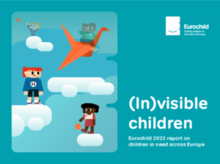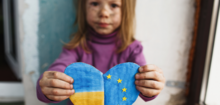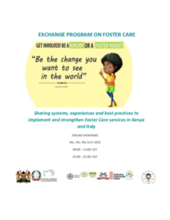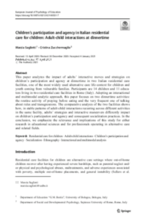Displaying 11 - 20 of 95
This report highlights the recommendations and priorities that EU decision-makers and national governments can do to support the most vulnerable children and prevent widening inequalities.
This volume covers a broad spectrum of current research findings concerning the participation of young people in foster families and residential living groups in Australia, Canada, Germany, Ireland, Italy, Portugal, Norway, Sweden, and Switzerland as well as cross-nationals perspective on children and young people’s participation in foster and residential care placements in Great Britain and France.
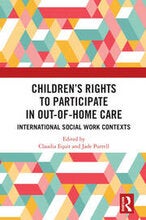
Eurochild has carried out an urgent mapping, with support from its members, UNICEF country teams and government representatives across 13 countries. The mapping examines the laws and policies at national level for children in alternative care and unaccompanied and separated children from Ukraine who arrive in the following countries: Czechia, Estonia, Germany, Greece, Hungary, Italy, Latvia, Lithuania, Poland, Romania, Slovakia, Spain and the United Kingdom.
The Kenya-Italy “Virtual Exchange Program on Foster Care” aims to create a platform for learning, networking and sharing knowledge and best practices on Foster Care among different government stakeholders, from Kenya and Italy.
The exchange program took place on 5th, 7th and 9th July 2021.
ISPCAN in partnership with Italian country partner, CISMAI, will be hosting the 2021 European Congress in the Rimini Convention Center. The event has been postponed from its original dates (June 22-24, 2020) to June 2021.
In this webinar the speakers discussed the implementation experiences and emerging lessons of COVID-19 response strategies of seven programmes that prioritize nurturing care and early childhood development in their work.
In this webinar, panelists will discuss the implementation experiences and emerging lessons of COVID-19 response strategies of seven programmes that prioritize nurturing care and early childhood development in their work.
Through an analysis of the impact of the pandemic on the Italian and Greek reception systems and social interventions with unaccompanied minors (UAMs), the authors of this study utilised a multiple embedded case study approach within a comparative analysis, to identify key changes in the main services which should be guaranteed to minors—namely, hosting/housing, guardianship, foster care, family/relatives reunification, school integration, language, job training for care leaving, and preparation for leaving care after 18 years.
This paper analyzes the impact of adults’ interactive moves and strategies on children’s participation and agency at dinnertime in two Italian residential care facilities, one of the most widely used alternative care life-context for children and youth coming from vulnerable families.
This article is based on ethnographic fieldwork in an Italian reception centre for male ‘unaccompanied minors’. The article examines the political ambivalence of hospitality for young African men as they transition to adulthood and how this is experienced through the intersections of age, gender and race.

